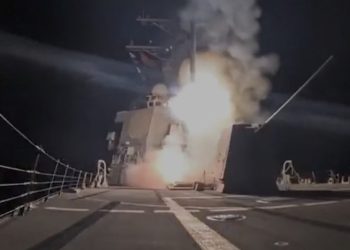Towards the end of last month, it was reported that 41 members of the violent Islamist sect, Boko Haram, were killed by the vigilante group – Civilian JTF – in Gur, one of the villages in Borno State. One eyewitness said the insurgents were on a mission to attack Sabon Gari in the area, where residents earlier attacked and displaced were just returning to their homes after three months of forced exile. But assisted by some military men, members of the Civilian JTF repelled the insurgents, killing 41 of them in the process and taking one alive.
Lately, about 80 Boko Haram sect members were also said to have been killed by local hunters in Mahia, Adamawa State. The hunters were stricken by anger when the sect sacked their town. They mobilized and recaptured their town from the intruders. They (local hunters) reportedly assisted the Nigerian military to take over some other captured towns in the state, like Mubi and Hong, from the insurgents. Indeed, it was claimed that former Vice President Atiku Abubakar supported the hunters’ mission with over 10 buses filled with local charmers (‘Yan Tori’ in Hausa) to beef up their fighting spirit.
Natives’ taking their destiny in their hands in insurgency-prone parts of the North East is no longer news. About the middle of last year, the Presidency hailed youths in Adamawa, Borno and Yobe states, who were said to be fully co-operating with security agencies to hunt and handover insurgents to the military. Abuja claimed at the time that having carried out an assessment of the state of emergency declared by President Goodluck Jonathan in the three aforementioned states, normalcy was gradually returning to the North-East. Presently, however, the insurgency is still continuing. It has become more widespread and Nigerians displaced so far are being counted in thousands. Still the youths from the worst hit states are co-operating with the security agencies.
But there appears to be a snag. It would seem that the military hierarchy views the actions of the hunters, as is rightly or wrongly being suggested in some quarters, as indicative of the people’s loss of confidence in the Nigerian Armed Forces. Reports say the military had been reluctant to allow the hunters move against the insurgents because they were not legally constituted, for example. On the face of it, the argument cannot be faulted. The hunters at best could have limited themselves to facilitating the onslaught of the military against the insurgents through local intelligence and directions. However, these are unusual times. The Boko Haram sect has been acclaimed as better equipped than the Nigerian military. Indeed, one of the sitting governors in the North East was quoted as telling a foreign news agency, Reuters: “Boko Haram is better armed and is better motivated than our own troops… Given the present state of affairs, it is absolutely impossible for us to defeat Boko Haram”. Besides, the Federal Government and its security agencies are finding it difficult to procure arms to prosecute the battle against the insurgents, as the recently bungled South Africa arms deal and comments from official quarters have indicated.
Not even the presence of foreign security experts/helpers invited after the abduction of over 200 school girls from Chibok, Borno State between April 14 and 15 this year has made any positive difference. Nigerian soldiers are also deserting their duty posts for fear of the Boko Haram sect. In the process, the dangerous sect has been spreading its tentacles with the least hindrance, while ‘security merchants’ who are benefitting from the crisis remain prayerful that the insurgency festers the more. In depressing times like the one the country is now locked in, any attempt to demoralise the local hunters of Adamawa or the Civilian JTF elsewhere by the military is objectionable.
From their utterances, the hunters that recaptured Mahia were self-motivated. They moved into the town after conventional soldiers fled; and were still able to kill and chase the insurgents out of Mahia. Telling them they cannot defend their land because they are not legally constituted will only make sense if the nation’s military is winning the war; and visibly so. But that is not the case presently. Boko Haram itself is not a legally constituted entity. Instead of recourse to officialdom, the military should screen the hunters and allow those of them ready to assist to join in the battle against the insurgents. Indeed, they have the additional advantage of being more at home with the terrain.













































